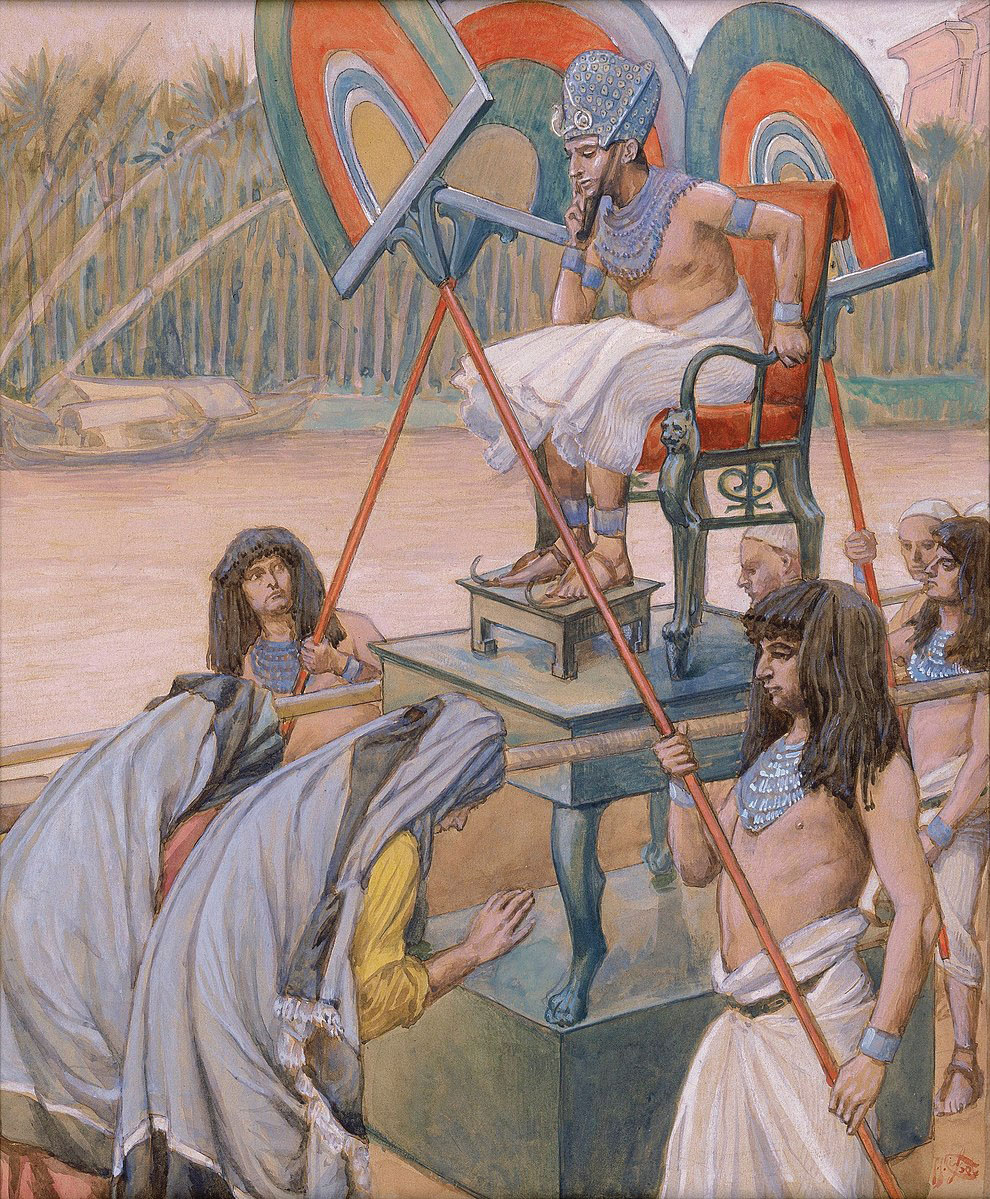Shiphrah and Puah, two midwives in Egypt, were commanded by the tyrant Pharoah to kill all male Israelite babies. As Exodus’ first chapter describes, however, the women sensed that above the monarch reigned a higher power. They feared God. So, “they did not do as the king of Egypt had told them; they let the boys live.” The women, in lieu of listening, offered an excuse to Pharaoh. They claimed that by the time they arrived to deliver the children (where they would have secretly killed them during the process of delivery), the boys had already been born.
This act of defiance has echoed throughout the generations. In demonstrating, as Rabbi Jonathan Sacks put it, “the moral limits of power,” the precedent these two women set was, he notes, “later taken up by the American writer Thoreau in his classic essay Civil Disobedience (1849) that in turn inspired Gandhi and Martin Luther King Jr” in their own fights for against oppression.
Often missed in the deserving praise of Shiphrah and Puah, however, is the passing mention of what happens next. In response to their actions, Exodus 1:21 states “and it was because the women feared God, he made them houses.”
What kind of houses? Who made them? Were they literal or metaphorical? A punishment or a reward? Well, all that’s been debated for centuries.
Rashi, citing the Talmud, believed Shiphrah and Puah to be Moses’ mother and sister, Yocheved and Miriam. Thus, the houses granted to them by God were Aaron and Moses possessing the priesthood and political leadership. Even kings, the ancient rabbis suggested, emerged from their descendants, in the merit of the midwives’ actions.
Abraham Ibn Ezra sensed a double divinely granted recompense. The midwives had originally been barren but after saving so many children merited those of their own. Additionally, Ibn Ezra added the possibility that the “houses” were literal safehouses, where God hid the midwives from a vengeful Pharaoh. Bekhor Shor suggested a more overt celebration of their deeds – with God granting them “wealth, and honor, and being fruitful and multiplying.”
The Rashbam, in a tragic suggestion, thought that it was in fact Pharaoh not God who made the houses, and instead of a reward, the midwives were punished with being put under house arrest. The 14th century Rabbi Bahya ben Asher similarly suggested – noting that “them” in “he made for them” is in the male conjugation and not the female and so might not refer to the midwives – that the houses were guard-houses for local Egyptians to spy on their Israelite neighbors and attempt to take away their children.
Don Isaac Abravanel, the 15th century Spanish sage, countered by positing that the recipient of the houses were the Israelites themselves (thus the male conjugation) whose literal houses were full of children as a result of the midwives’ courage and kindness. The 19th century Italian scholar Shadal composed a moving proposition in the name of his father. He wrote that “the Israelites wished to reward the midwives, and since they were trained in the use of mortar and bricks [during their slave labor], they built them houses” to repay the kindness of sparing their kids.
Modern literary scholars have noted that similar language pops up in the book of Samuel in the context of God’s commitment to David that he will have a monarchical dynasty. The midwives, in other words, were gifted a family celebrated for generations.
The contemporary Bible professor Victor P. Hamilton explained that in Egyptian, the kingly title “Pharaoh” itself means “Great House.” So God offered a fitting reward for those who had faith in Him. “Those who pull the wool over the eyes of King Great House,” Hamilton writes, “end up with their own houses.”
Not coincidentally, the next biblical story, the birth of Moses, begins by describing how “and a man from the House of Levi took as a wife the daughter of a Levite.” As a result of the midwives’ actions, and whether they were punished or rewarded, the Torah is indicating that they enabled the Jewish people’s liberator Moses, to be born in a Jewish home. And it would be he who would ultimately free his people from the house of bondage in Egypt.
Rabbi Dr. Stuart Halpern is Senior Adviser to the Provost of Yeshiva University and Deputy Director of Y.U.’s Straus Center for Torah and Western Thought. His books include “The Promise of Liberty: A Passover Haggada,” which examines the Exodus story’s impact on the United States, “Esther in America,” “Gleanings: Reflections on Ruth” and “Proclaim Liberty Throughout the Land: The Hebrew Bible in the United States.”




